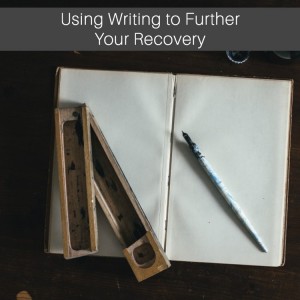 While it won’t cure substance abuse issues on its own, writing offers many therapeutic benefits to people in recovery. Even if you’ve never had the urge to jot down your thoughts in the past, writing can be a powerful tool for physical, mental, and spiritual healing.
While it won’t cure substance abuse issues on its own, writing offers many therapeutic benefits to people in recovery. Even if you’ve never had the urge to jot down your thoughts in the past, writing can be a powerful tool for physical, mental, and spiritual healing.
How Writing Helps in Addiction Recovery
In today’s fast-paced world, many people jump from one activity to another without ever pausing to consider the consequences of the choices they make. Those who struggle with addiction to drugs or alcohol are often even more frantic—using substance abuse to avoid uncomfortable self-reflection.
Writing allows you to take the time to contemplate your life story without any outside distractions. It’s a way to better understand your past, present, and future.
Some of the benefits of writing while in recovery include:
- Processing past trauma, such as physical or verbal abuse
- Coping with loss, such as the death of a loved one or the end of a relationship because of your addiction
- Understanding the roots of your addiction
- Tackling challenges associated with co-occurring mental health disorders such as anxiety and depression
- Taking a second look at your emotional response to specific situations
- Reframing your thoughts on specific recovery challenges
- Acting as a distraction technique for coping with cravings
- Documenting your progress so you can see how far you’ve come when you’re feeling discouraged
- Gaining a better understanding of your personal strengths and weaknesses
Anyone can benefit from writing while in recovery, but this activity is particularly helpful for those with more introverted personalities. If you struggle to feel comfortable sharing openly in a group, writing down your thoughts may be a way to process issues on your own terms. Finding a way to open up without fear, anxiety, or shame can give you the boost you need to continue moving forward in your recovery.
How to Get Started
The act of writing is a highly individual process, so there is no right or wrong way to go about incorporating writing into your recovery plan. Depending on your preferences, your writing can take many forms. For example:
- Private journal entry
- Letter to a friend
- Memoir
- List
- Song lyrics
- Poetry
- Short story
- Novel
Some prompts you might use include:
- Write a letter to yourself as a child, teen, or young adult
- Describe the moment that make you realize you needed to seek addiction treatment
- Explain how you handle your cravings
- Describe how you imagine your life after six months, one year, two years, etc. in recovery
- List all of your recovery accomplishments and describe how they make you feel
- Write a letter to a friend or family member who has supported you throughout your recovery journey
Although typing may seem like the natural choice, the old-fashioned method of putting pen to paper may help you connect with your emotions on a primal level. Use whatever method feels most natural.
The best way to overcome writer’s block is to make writing a part of your daily routine. Set aside 15 to 20 minutes at the beginning or end of each day to write, preferably in a quiet place with no distractions.
As you write, don’t worry about spelling, grammar, or sentence structure. Focus simply on getting your thoughts down on paper. You can always edit and revise at a later date if you feel it’s necessary. Remember, even professional writers don’t create award-winning prose on the first try.
Sharing Your Work
It’s fine to want to keep your writing private. However, sharing your work with a broader audience can offer a number of advantages as well. For example:
- Positive feedback that boosts self-esteem
- Emotional satisfaction from helping others with their recovery journey
- Feeling less isolated as you learn how others have connected to your addiction and recovery story.
- Reader insights that make you think about your specific recovery challenges in a new way
In addition to sharing with your counselor or the members of your 12-step group, you may choose to seek out writing workshops for people in recovery or to start a blog.
Tapping into the Power of Creativity to Make a New Life for Yourself
You may find that you enjoy writing exclusively, but writing can also be combined with other holistic therapies for addiction recovery. Music, art, or dance therapy can all be used to explore many of the same issues while providing a creative outlet. No matter what path you choose to pursue, finding sober ways to express yourself can help you build a future without the burdens of addiction.
By Dana Hinders
To learn more about our programs, please visit our website.
Related articles:


